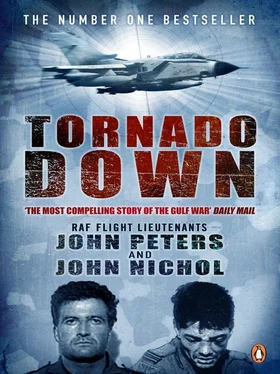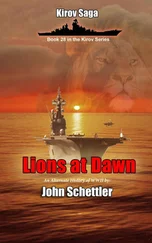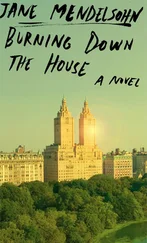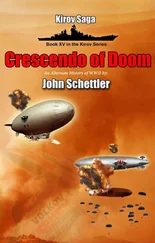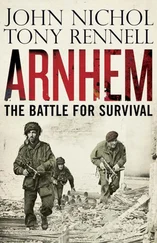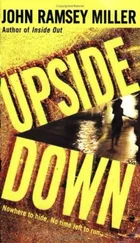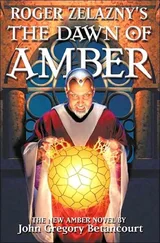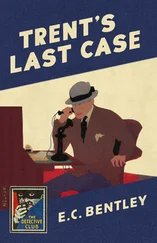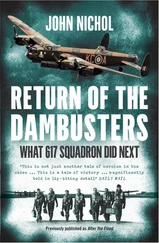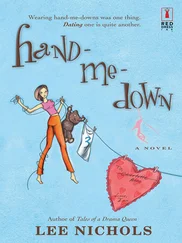‘We are,’ replied an official, a woman of about twenty-eight.
‘And who’s protecting you?’
‘Our Red Cross will protect us,’ she answered, pointing at her badge. This was courageous if unconvincing.
Nobody wanted to sleep that night. We split into small groups, gathering in various bedrooms, with people coming and going all the time. We could not stop ourselves talking. We had to keep telling our stories, over and over again. For breakfast we had wonderful hot croissants, aromatic coffee, honey, jam and marmalade, boiled eggs.
A message came through to say that all of the British POWs must cover their faces with blankets when they left the hotel. This was presumably to prevent the waiting press identifying the POW being released. The Iraqi mob was outside too. They were curious to see these people who had wreaked havoc on their country. We had to fight our way past them. Keeping our faces hidden, even with the blankets, was a tricky business. Photographers thrust their cameras up against the windows of the bus at all angles, and we had to crouch down low between the seats to avoid being filmed. We got onto the bus all right, but once on it we sat in the carpark for an hour. We were stuck. The news people would not move back; the Iraqi crowd would not move back. Eventually an armed escort was called; we edged free.
On the way to the airport, we had a guided tour of Baghdad. One of the Iraqi escorts showed us the main points of interest, only in this case they were not the usual tourist sites, but the results of the Coalition bombing. He seemed almost proud of them. We passed the remains of the telephone exchange, a blackened mass of twisted girders, nothing more. Amazingly –and when you were on the ground close by, it was absolutely amazing – this ruin was flanked on either side by substantial department stores, neither of which showed the slightest damage. A power-station was next, similarly flattened, the surrounding buildings untouched. It was just as striking to see the un damaged parts of the city. The centre of Baghdad was much like any cosmopolitan city anywhere: there were the standard, large luxury stores, some of them bearing signs in English, and the international hotels, like the one we had just been in. It was a complete contrast to the Iraq we had seen up until then.
Regular Iraqi troops were swarming all around Saddam Hussein International when we got there, but the airport’s doors were firmly bolted against us. We sat outside, for what seemed like hours, until the doors suddenly swung open, and wave after wave of returning Iraqi prisoners of war started streaming out. They must have been among the first to come home. We thought they might even be returning in exchange for ourselves. After an age, when this flood had dried up to a trickle, they let our group go through. Then all at once we were on the plane, with the stewards making the doors safe, and the cheerful Swiss pilots chatting over the intercom. We settled back in our seats, relaxing in the naive belief that we were safe at last. But the Iraqis had reserved one more little treat for us, and a most terrifying, skin-crawling and horrifying one it was.
Looking out across the airfield, we had noticed that every single hangar, every single Hardened Aircraft Shelter, all the major installations had been blown to bits. Only the terminal remained intact, an exception that must have been a deliberate decision on some Allied planner’s part, given the thoroughness of the destruction everywhere else. What had also survived were the dozens of Triple-A sites that littered the airfield. As we began taxying out of the holding bay, all the Iraqi soldiers who had been loitering around doing nothing much were suddenly galvanised into action. They started running towards these gun-emplacements. Only there was no raid. As if at a signal, the gunners trained the barrels of their weapons directly at our civilian airliner.
It may have been no more than an empty gesture of defiance, but a graveyard hush settled over the interior of that aircraft. We were so vulnerable.
‘No, they wouldn’t dare…’
‘They can’t be…’ and less optimistically, ‘What have they got to lose?’
The long black barrels swung with our progress along the taxiway. The Iraqis were having fun, we told ourselves, they were snapping their fingers in our face. It was an empty threat. But it was a very sick kind of fun when you saw those guns sighted up on you. Rolling down that runway for take-off, we all had our heads down. You could hear the prayers go up. As the aircraft’s wheels came unstuck from the tarmac, the most tremendous resounding spontaneous cheer went up, ringing out as we soared clear of the Iraqi guns. The blankets and coffee the Swissair staff brought round immediately after this were extremely welcome – we were in need of a little warmth after the shock. But they were nowhere near as welcome as the two F-15s that came out to meet us while we were still in Iraqi airspace. Pulling slow victory rolls as they approached, the fighters pulled up alongside us, until they were sitting very close on our wings. Brilliant infra-red flares began streaming out behind the fighters, the pilots releasing them as a victory symbol, a celebration of our liberty. One of the pilots took his mask off, and began punching the air with his fist, in the American victory sign. Strangely, we were all having difficulty with our vision. It was a very emotional moment.
Not to be outdone, two RAF Tornado F3s turned up next, the Tornado air defence variant, a ‘stretched’ version of our own GR1. In the context, they were a truly beautiful sight. In proper British style, the pilots contented themselves with waving at us – but it was enthusiastic waving! I was up in the cockpit with a headset on. It was very, very moving speaking to one of the F3 pilots over the radio. Somehow the sight of those friendly aircraft, shepherding us home, brought our freedom into sharp focus.
Keying the mike, I said, ‘It’s fantastic to see you… I never thought I would be glad to see an air defence guy on my wing…’ (As bomber crews, we normally hate fighter jocks!) The four fighters, two British, two American, escorted us into Saudi airspace. There was another resounding cheer as we crossed the border, leaving Iraqi airspace for ever – we hoped. Now we really were beyond reach.
As we came in to land at the huge Saudi military airbase in Riyadh, home for the duration to a large percentage of the Allied Air Forces, we could see a huge reception lined up for us on the tarmac below. Every Allied Air Force person who could get away was there to greet us; there were thousands and thousands of them. The Americans were lined up, clapping and cheering, but what brought a prickling of tears to the eyes was the British crews. They were formed up, in the thirty-degree heat, in uniform, standing rigidly to attention in our honour. It was like a scene from The Bridge on the River Kwai . That brought a lump to my throat all right. It was important not to let rip with the waterworks just then, however; there was too large an audience!
As we taxied up to the red carpet that had been rolled out for us, we were staring out of the windows, overwhelmed by the sight outside. Somebody shouted, ‘Hey, there’s Schwarzkopf!’ We had just come from the desolation of Baghdad, and now this! We stumbled down the steps of the aircraft, dazzled by the bright sun. We met ‘Stormin’ Norman’, General Norman Schwarzkopf.
‘Welcome home, you guys,’ he said. ‘You’ve done a great job.’ He was flanked by the Air Commander British Forces, Air Vice-Marshal Bill Wratten, and the British Ambassador to Saudi Arabia. Saudi Arabia was represented by the Prince Regent. This was amazing and brilliant, and quite unexpected. We were extremely pleased to meet Stormin’ Norman, it was an honour; he had grown almost legendary in a matter of months, even before the war started. But… just beyond General Schwarzkopf, just beyond the collection of VIPs clustered around him, were our aircrew mates, including the familiar face of my mate Flight Lieutenant Chris Lunt, from XV Squadron! I had not expected to see anyone I knew, let alone a friend. Seeing Lunty, my resolve to keep a stiff upper lip was shattered. I ran over to him. His friendly face had the same effect on me as I later learned it had had on JP. We had a bawl!
Читать дальше
